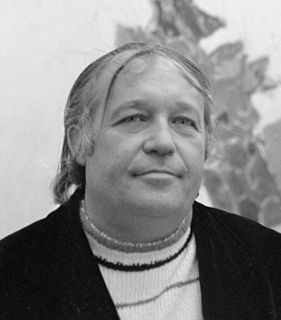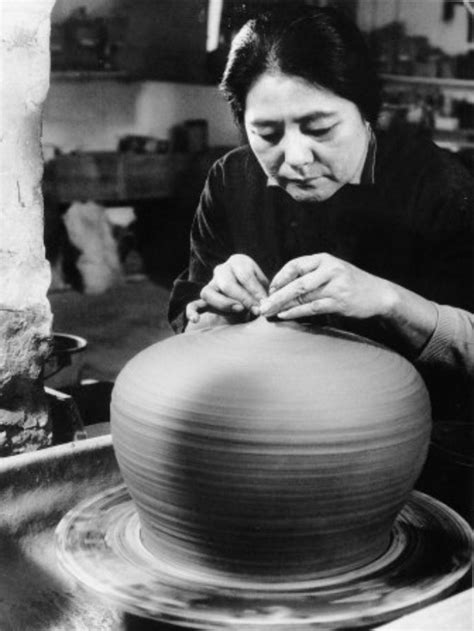A Quote by Sam Francis
The personal lives of painters are tragic and inevitable and do not explain the artist. For the artist is his work and no longer human.
Related Quotes
An artist is above all a human being, profoundly human to the core. If the artist can't feel everything that humanity feels, if the artist isn't capable of loving until he forgets himself and sacrifices himself if necessary, if he won't put down his magic brush and head the fight against the oppressor, then he isn't a great artist.
Why was the painting made? What ideas of the artist can we sense? Can the personality and sensitivity of the artist be felt when studying the work? What is the artist telling us about his or her feelings about the subject? What response do I get from the message of the artist? Do I know the artist better because of the painting?
Leonard [Nimoy] was such a teacher for me. He was one of the most fully realized human beings I have ever known on every level - in his personal life with his personal relationships and his love for his wife and his evolution with his family. Then as an artist, as an actor, as a writer, as a poet, and as a photographer. He never stopped.
When the artist is truly the servant of the work, the work is better than the artist; Shakespeare knew how to listen to his work, and so he often wrote better than he could write; Bach composed more deeply, more truly than he knew, Rembrandt's brush put more of the human spirit on canvas than Rembrandt could comprehend. When the work takes over, then the artist is enabled to get out of the way, not to interfere. When the work takes over, then the artist listens.
What makes someone an artist? I don't think is has anything to do with a paintbrush. There are painters who follow the numbers, or paint billboards, or work in a small village in China, painting reproductions. These folks, while swell people, aren't artists. On the other hand, Charlie Chaplin was an artist, beyond a doubt. So is Jonathan Ive, who designed the iPod. You can be an artist who works with oil paints or marble, sure. But there are artists who work with numbers, business models, and customer conversations. Art is about intent and communication, not substances.
The artist seeks contact with his intuitive sense of the gods, but in order to create his work, he cannot stay in this seductive and incorporeal realm. He must return to the material world in order to do his work. It's the artist's responsibility to balance mystical communication and the labor of creation.
To be an artist it is not necessary to make a living from our creations. Nor is it necessary to have work hanging in fine museums or the praise of critics . . . To be an artist it is necessary to live with our eyes wide open, to breathe in the colors of mountain and sky, to know the sound of leaves rustling, the smell of snow, the texture of bark . . . To be an artist is to notice every beautiful and tragic thing, to cry freely, to collect experience and shape it into forms that others can share.








































